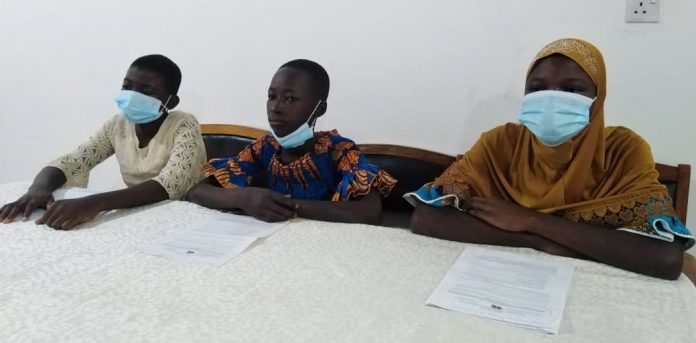Adolescent girls in the Upper East Region have appealed to government to take pragmatic measures to address sexual and reproductive health rights challenges facing them, to realize their full potentials.
This they said would empower adolescents to make informed decisions regarding their sexual and reproductive health lives and curb the increase in teenage pregnancies and child-marriage cases in the country.
It would also enable the adolescents especially girls to acquire the needed education to contribute to gender equality and the attainment of the Sustainable Development Goals (SDGs).
The girls, from six districts in the Upper East Region, were speaking at a media briefing in Bolgatanga, to lay bare their challenges and appeal for help.
The event was facilitated by the Rural Initiatives for self-Empowerment Ghana (RISE-Ghana), an advocacy Non-Governmental Organization with funding support from the United Nations Children’s Emergency Fund (UNICEF), as part of the implementation of adolescent and reproductive health rights and nutrition.
The project seeks to advocate the creation of enabling and protective environment for adolescents and gatekeepers to champion sexual and reproductive health rights in the region.
It is being implemented in the Bawku West, Kassena-Nankana West, Bongo, Builsa South, Talensi and Nabdam Districts.
Ms Esther Bugre, a 13-year-old pupil of the Presentation Junior High School in the Nabdam District who spoke on behalf of the adolescents noted that teenage pregnancy, defilement, poor nutrition, child neglect and exploitation continued to hinder the progress of adolescents and urged government to address them.
She said sexual and reproductive health rights were critical to their development and asked government and other policy makers them in making decisions and appealed for the establishment of changing rooms in schools for girls have privacy and hygienic conditions during menstruation.
She also pleaded for tax amnesty on sanitary pads for the less privileged to afford.
Miss Jaw-haratu Amadu, the Head of Programmes, RISE-Ghana, said the region was bedeviled with teenage pregnancy as statistics from the Ghana Health Service revealed that the region recorded 6,533 cases in 2020 and 1,639 cases in the first quarter of 2021.
She attributed it to lack of access to sexual and reproductive health education for them to make the right choices regarding their sexual lives as it was affecting the education of girls and women empowerment.
“Adolescent girls in Ghana are unable to harness their potentials and realize their dreams due to a myriad of factors ranging from teenage pregnancy, limited access to sexuality information and services, negative masculinity norms, sex taboos, gender norms among others,” she added.
Ms Amadu said the project would identify, mobilize and empower gatekeepers, service providers to create protective and conducive environment for improved access to quality, age-appropriate comprehensive sexuality education and reproductive health services.



